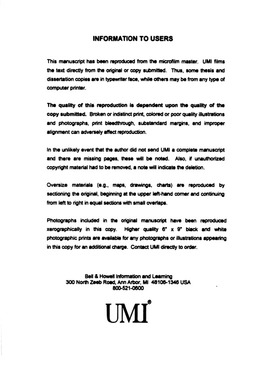| dc.contributor.advisor | Rodgers, Joseph Lee, | en_US |
| dc.contributor.author | Doughty, Debby Ella. | en_US |
| dc.date.accessioned | 2013-08-16T12:30:58Z | |
| dc.date.available | 2013-08-16T12:30:58Z | |
| dc.date.issued | 2000 | en_US |
| dc.identifier.uri | https://hdl.handle.net/11244/6000 | |
| dc.description.abstract | This study examined the relative importance of the conditional model and the alternative model. These models have been used to explain the development of reproductive strategies in humans. The conditional model assumes a common genotype among individuals. Within this model, the choice of a long-term or short-term orientation to reproductive strategy is thought to be contingent on environmental cues. The alternative model suggests that genetic differences between individuals determine whether they adopt a short-term mating strategy without paternal investment in the rearing of children, or a long-term mating strategy that includes high parental investment in children. DeFries and Fulker regression analysis was used to examine the relative importance of the shared environment, nonshared environment, and genes on family attachment or bonding, attitudes relevant to mating relationships, sexual behavior, and childbearing in adolescence, and behavioral outcomes such as commitment to a partner before having sexual intercourse, age at first intercourse, and the number of sexual partners. The results supported the alternative model of reproductive strategy with moderate heritabilities found across all measures. Small to moderate shared environmental influences were found for attachment related to fathers, attitudes regarding the consequences of a pregnancy in adolescence, and the number of sex partners. No genetic influence was found for the attitude that getting pregnant or getting someone pregnant at this time would be so bad, providing some support for the conditional model. The results demonstrate that both nature and nurture make important contributions to adolescents' relationships with family members, attitudes, and sexual behaviors. The relationship of the findings to evolutionary theory is discussed. | en_US |
| dc.format.extent | ix, 87 leaves : | en_US |
| dc.subject | Teenagers Sexual behavior. | en_US |
| dc.subject | Psychology, Developmental. | en_US |
| dc.subject | Biology, Genetics. | en_US |
| dc.subject | Human genetics. | en_US |
| dc.subject | Human reproduction Age factors. | en_US |
| dc.title | Genetic and environmental influences on the development of reproductive strategies during adolescence. | en_US |
| dc.type | Thesis | en_US |
| dc.thesis.degree | Ph.D. | en_US |
| dc.thesis.degreeDiscipline | Department of Psychology | en_US |
| dc.note | Adviser: Joseph Lee Rodgers. | en_US |
| dc.note | Source: Dissertation Abstracts International, Volume: 61-06, Section: B, page: 3306. | en_US |
| ou.identifier | (UMI)AAI9975803 | en_US |
| ou.group | College of Arts and Sciences::Department of Psychology | |
